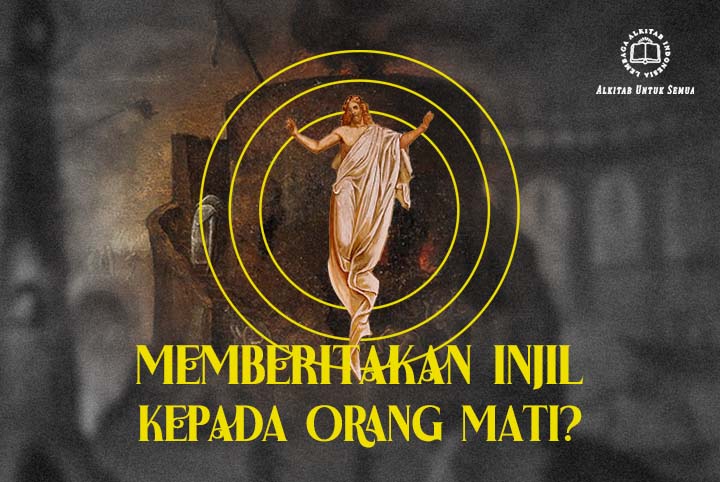The question of who founded Christianity: Jesus or Paul, has become a classic debate, both in popular and academic studies. Among the laity, the conflict between Jesus and Paul is often raised with the assumption that Paul was the one who shifted the core teachings of Jesus, and then built a new religion that was independent of the roots of Judaism. But why this assumption?
Jesus in his historical context was a Jewish figure who proclaimed the Kingdom of God, the reign of God that began to appear in the world through his word and work. This proclamation was local, contextual, and targeted marginalized groups: the poor, sinners, and those excluded from religious communities. It dismantles socio-religious barriers and emphasizes God's grace for all people.
Paul, in his letters, appears as a figure who continues this mission, but with a broader scope. He developed theological concepts such as justification by faith, the sacrifice of the cross of Christ, and salvation for the Gentiles. In the eyes of some, the transformation of Jesus' moral and narrative teachings into a theological system appears to have undergone a fundamental change. Especially with his emphasis on "faith, not Torah," Paul was seen as breaking away from the roots of Judaism.
However, contemporary biblical studies show that this view is oversimplified. Paul himself faced similar objections in his day, and through his letters, he sought to explain that the gospel he brought was a continuation of Jesus' proclamation.
Basically, Jesus and Paul both taught that God's grace is open to all people. At the heart of Jesus' proclamation was the Kingdom of God made available to sinners, while Paul elaborated that salvation was now also available to non-Jews through faith in Christ. Both affirmed that salvation is not a monopoly of the pious or religious elite, but a universal gift of God. Jesus dismantled internal exclusivism within the Jewish community (e.g. the attitude of the Pharisees), while Paul paved the way for external inclusivism by reaching out to the Gentiles. Both have the same direction, which is to present one new people of God.
Both Jesus and Paul taught that salvation and the reign of God had begun, but were not yet fully realized. In the Lord's prayer, Jesus taught the people to ask "your kingdom come," signifying that the fullness of the kingdom is still awaited. However, His presence has begun through the work of the Holy Spirit.
Paul made a similar point, justification begins now for those who believe (Romans 5:1), but the fullness of justification will be fulfilled at the judgment seat of Christ (2 Corinthians 5:10). The Holy Spirit is for Paul the guarantee (ἀρραβών) and the firstfruits of final salvation (2 Corinthians 1:22; Romans 8:23). The Holy Spirit enables believers to live in the eschatological range: already saved, but not yet fully.
Torah, Love, and the Living Law
Jesus did not reject the Torah, but rather interpreted it radically. He said, “Do not think that I have come to destroy the law or the prophets. I have not come to abolish them, but to fulfill them. In this regard, it is important to note that for Jesus, the Torah is not an idol but an icon, not to be worshipped in a legalistic way, but as a window that leads to the saving will of God. Jesus' interpretation of the Sabbath and uncleanliness laws confirms that it is not outward form that is central, but love that promotes life and the wholeness of creation.
Paul did not discard the Torah. He declared that the law is confirmed by faith (Romans 3:31), and that true circumcision is the circumcision of the heart (Romans 2:28-29). He also interpreted the entire law in the light of love: “For the whole law is contained in this one word, "You shall love your neighbor as yourself!" ””. (Galatians 5:14). Thus, the law in Paul's letters is in line with the law of love that Jesus lived out.
Paul was not a founder of Christianity, but a preacher of Jesus Christ.
Paul was not the founder of Christianity in the sense of inventing a new doctrine separate from Jesus. He was a faithful disciple, who continued and interpreted the message of Jesus in the context of the Greco-Roman world. He presented the gospel to the nations, and with the inspiration of the Holy Spirit, elaborated on the theological consequences of Christ's life, death, and resurrection. Thus, instead of seeing Jesus and Paul as two contradictory figures, we find a deep continuity both in terms of mission, the universal love of God, the Holy Spirit as the enabling power of God, and the law of love that is at the heart of new life in Christ.
Therefore, the question "Who is the founder of Christianity?" is not just a matter of who first established religious structures, but who laid the theological foundation and proclamation of the Gospel. In that light, Jesus is the center of the Christian faith, and Paul is His faithful proclaimer.

























